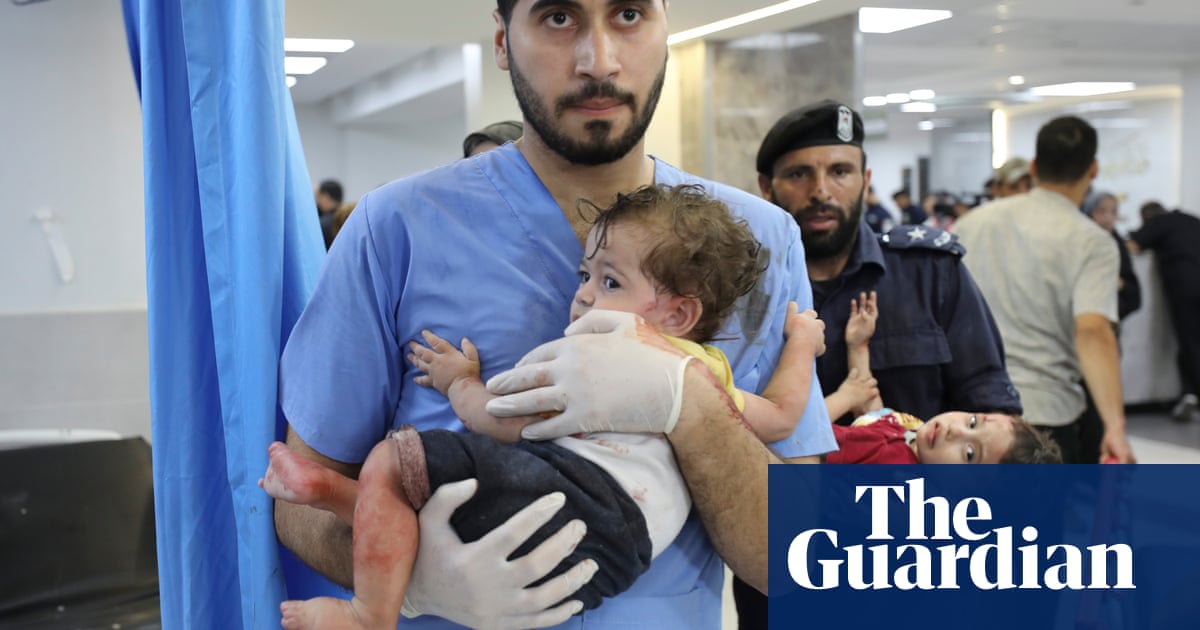
After coming the closest yet to falling apart, the ceasefire between Hamas and Israel is back on its fragile track. Just days ago, an escalating dispute threatened the deal after both sides expressed frustration about the other’s fulfilment of their respective obligations. Donald Trump’s recent proposal to resettle Gaza’s population of two million Palestinians also rattled the truce.
The turbulences of the month-old ceasefire expose a deeper political uncertainty: after 15 months of fighting, no clear vision exists for what comes next. Who should govern and rebuild Gaza? What will its future relationship with Israel be?
To navigate these questions, listening to ordinary people’s perspectives is crucial. As behavioural scientists based at the London School of Economics, Jeremy Ginges and I conducted a large-scale study of how Palestinians in Gaza and Israelis view each other, and the future. Just days before the ceasefire was announced in January, we surveyed more than 1,400 people in nationally representative samples. Ongoing access restrictions and the conflict mean that public opinion in Gaza is rarely discussed. Our data collection there was part of in-person interviews led by Artis International and the Palestinian Center for Policy and Survey Research (PSR) with its existing polling infrastructure. Additionally, we spoke to several Palestinians in Gaza during the ceasefire’s first phase via online phone calls several weeks ago.
One of the most striking findings in our research is how a deep psychological asymmetry between each side’s perceptions of the conflict has entrenched divisions. In Gaza, despite 16 months of devastating conflict and displacement – in the cases of some of those we polled as many as 10 times – political convictions were prioritised by many Palestinians, even over immediate personal safety. Respondents were asked to indicate how much they considered different values as part of their personal identity. Israelis hold more firmly now to their national identity compared to data we collected in May 2024, and a large majority of people in Gaza now indicate strong commitment to being Palestinian (94%), achieving national sovereignty (86%), and the right of refugees to return to their ancestral towns and villages lost during Israel’s creation in 1948 (90%). A smaller group, but still more than a quarter, even saw these values as completely central to their identity, a predictor of extreme sacrifice and violence, as Scott Atran and Ángel Gómez write. About one in four people in Gaza fully identified with maximalist ideas of sharia law and hard opposition to peace with Israel. As fewer Palestinians in Gaza consider the war the most pressing challenge for Palestinians, a trend shown by a recent PSR poll, other political identities are coming back to the fore.
To better understand the current perspective of Palestinians in Gaza, we examined their interpretation of the conflict so far. We asked why members of their own group supported violence during the war and why they believed the other side did. A striking pattern emerged: both Israelis and Palestinians attributed their own side’s attacks to “ingroup love” (concern and protection for their people) more than to “outgroup hate” (a desire to harm the other side). However, both groups believed that the other side was motivated more by hatred.
This perception gap matters. Research shows that when people believe they are hated by another group, they become less inclined to support diplomatic solutions. Our data confirms this. When it comes to long-term political futures in Gaza, slightly less than half (48%) of Palestinians remain supportive of some form of a two-state solution. Others said the more realistic scenarios for ending the conflict involve the displacement of Jews from the region (20%), or the establishment of one state under strict sharia law (27%), in which Jews would have fewer rights. Only 5% believed in a one-state solution with coexistence under equal rights.
But how – and with whom as leaders – do people in Gaza envision achieving their goals? Hamas, which has ruled the territory since 2007 and is rooted in the idea of an Islamic Palestinian nation, may seem the natural contender. But according to PSR polls, support for Hamas has decreased from 42% shortly after 7 October 2023 to only 21% in January 2025. In fact, as Hamas’s wartime performance is increasingly criticised, fewer people in Gaza see it winning or support attacks against Israel. Together with many Palestinians preferring more reconciliatory visions in the first place, this is good news for peace efforts.
And yet, if elections were held, many Palestinians say they would still vote for Hamas. The reason? No viable alternative has seized on Hamas’s decline. Fatah, the ruling party in the West Bank and dominant force in the Palestine Liberation Organisation (PLO), is widely considered weak and illegitimate, as people in our research confirmed. Once again, perceptions of outgroup hate significantly lowered approval of the PLO, which stands for a more diplomatic approach towards Israel. Other political figures have gained popularity, but no movement has coalesced around them. Instead, the 32% of Palestinians who say their interests are entirely unrepresented by all available options now form the largest constituency in Gaza.
With no clear leadership, Gaza’s post-war future remains undecided. There is reason to hope, however. For one, more than 90% of the people in Gaza are optimistic about long-term prospects for an armistice or peace. Perceptions about outgroup hate can change over time, as our data indicates, or be corrected, according to experimental studies. Although difficult, this could boost support for diplomacy and reconciliation. As for concrete policies, the people we polled in Gaza are increasingly open to some alternatives, such as a temporary security presence and reconstruction facilitated by Egypt.
After nearly sliding back into war, Israel and Hamas now enter a fragile new round of ceasefire negotiations. But the real challenge is finding leaders on both sides who can not only represent their people’s political interests, but also bridge the psychological divide that obstructs lasting peace.
Nils Mallock is research fellow at the XCEPT research group at King’s College London, a PhD candidate at the London School of Economics, and regularly briefs the UK Foreign Office on policy-related issues
This article was co-authored by Jeremy Ginges, professor in behavioural science at the London School of Economics and author of various studies on intergroup conflict and conflict resolution












